Love Spielberg movies? Check out never before seen images from his first decade of films
Purchases you make through our links may earn us and our publishing partners a commission.
How do you define “Spielbergian,” the special sauce that makes Steven Spielberg a singular artist? A good person to ask is the guy who’s been documenting the iconic director’s movies for 30 years.
“It's all about cinema and storytelling, and in a way that is immediately relatable and accessible,” says filmmaker/author Laurent Bouzereau. “Throughout his career, even to this day, he never really makes the same film twice. He's someone who reinvents himself constantly.”
Featuring never-before-seen photos and interviews with the legend himself, Bouzereau’s new coffee table book “Spielberg: The First Ten Years” (Insight Editions; out now) is a detailed chronicling of the Oscar-winning filmmaker’s earliest movies from 1971-82, including classics like “Jaws” and “Raiders of the Lost Ark.”
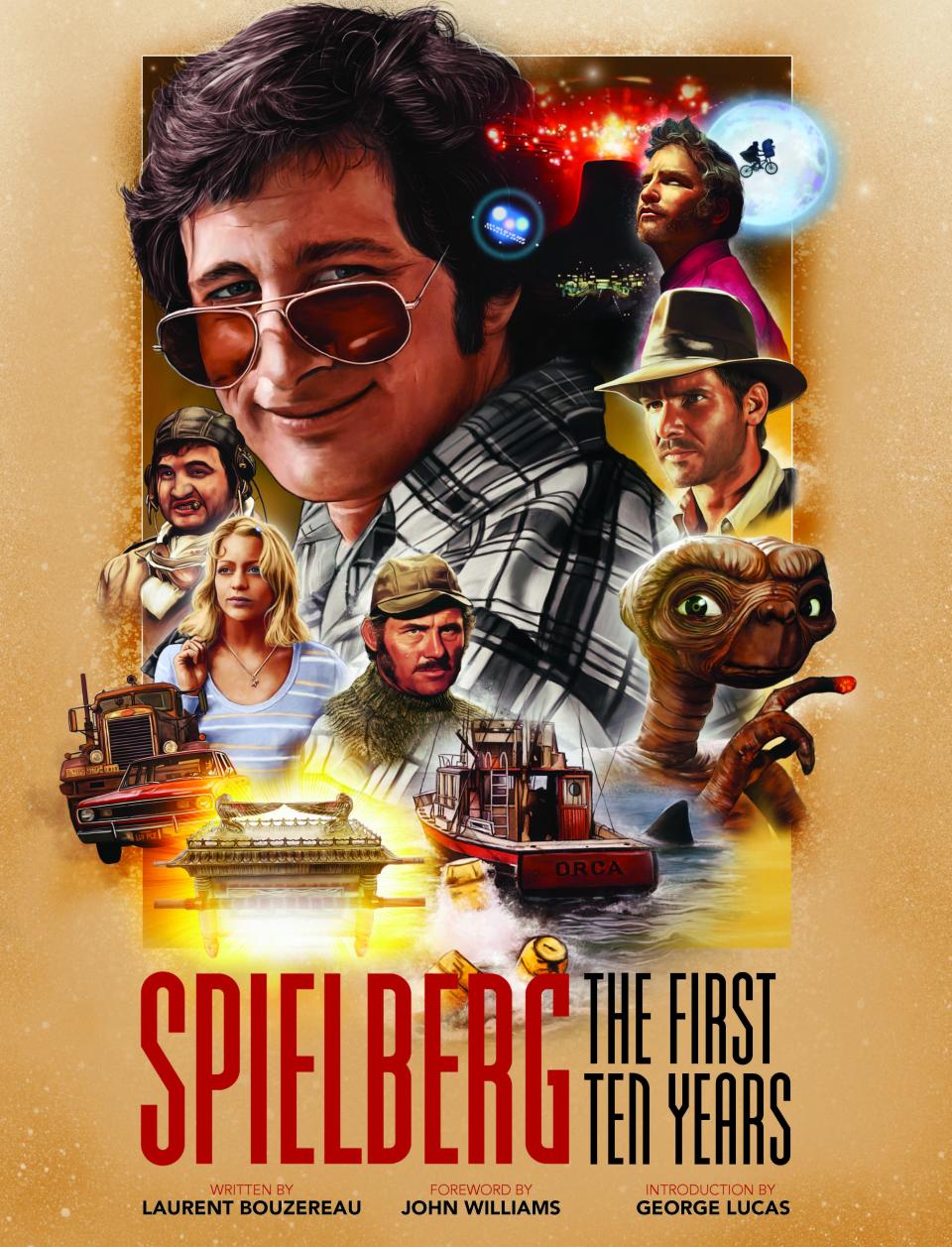
It’s also a personal effort for Bouzereau, who first met Spielberg in 1993 when doing a documentary for a restoration of “1941.” Growing up in France, Bouzereau would watch Spielberg movies – new releases and summer rereleases alike – multiple times in the theater. “I was very lonely as a kid, just because my personality, and I always felt safe with Steven,” he says. “That was always my refuge.”
Bouzereau shares with USA TODAY exclusive images from his book and insight into Spielberg’s first decade:
Steven Spielberg went hell on wheels for ‘Duel’ debut
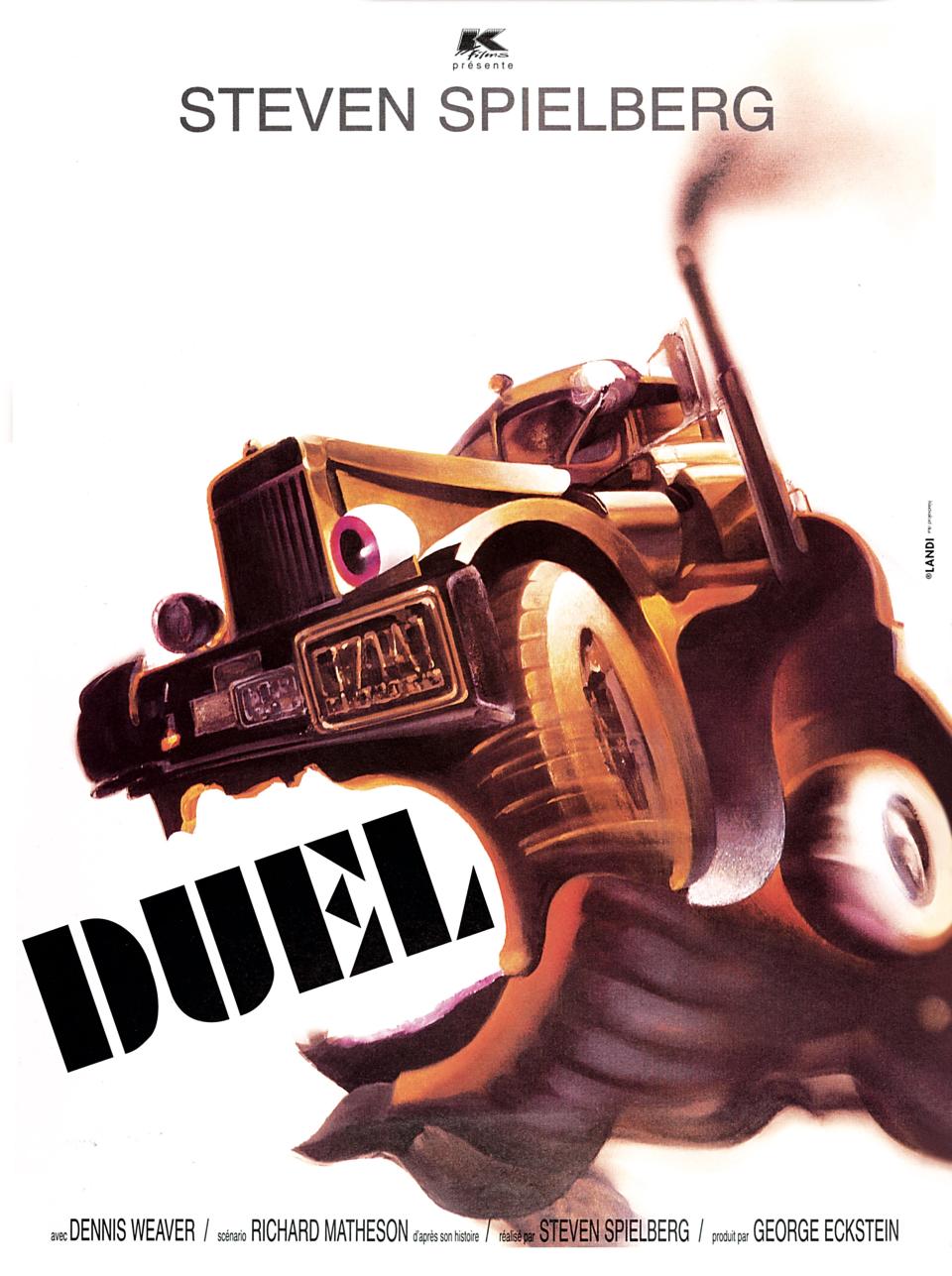
The director’s made-for-TV first film was 1971’s “Duel,” an action thriller starring Dennis Weaver as a salesman on a business trip hunted on the highway by a dangerous mystery driver of a 40-ton tanker truck. The semi, chosen from among seven vehicles by Spielberg because to him “it had a face,” was the filmmaker’s first movie monster – one that terrorized folks before the shark from “Jaws” and Tyrannosaurus rex of “Jurassic Park.” And for Bouzereau, “Duel” was more a horror film than a road rage picture. “It has a touch of the supernatural because you never really quite see the driver,” he says.
Steven Spielberg: All of the legendary director's movies, definitively ranked
’Sugarland Express’ connects to a frequent Spielberg theme: The broken home
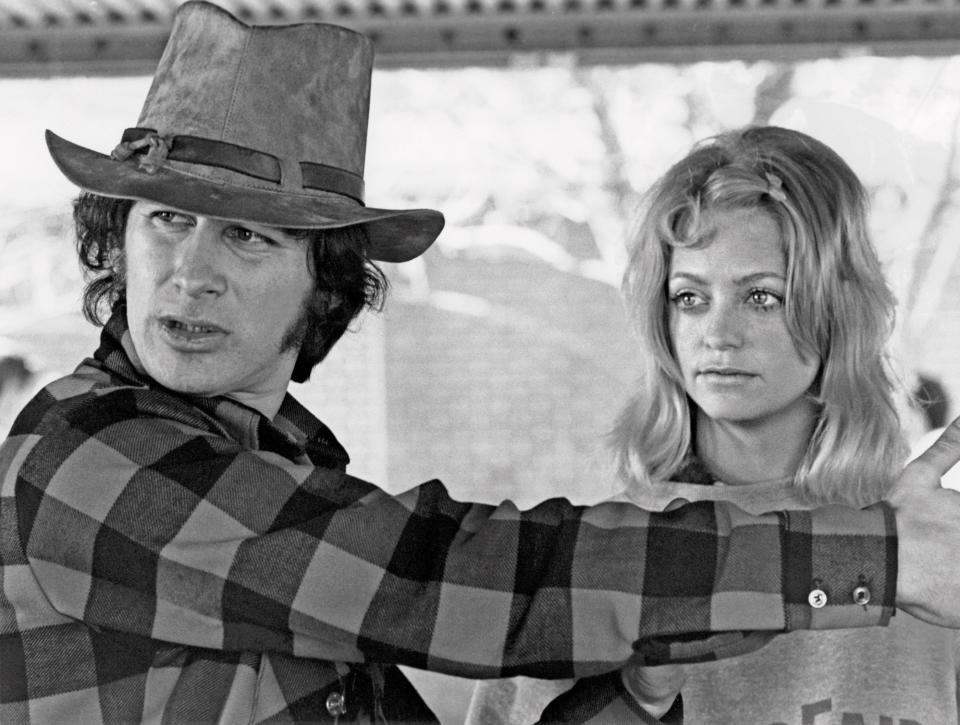
Spielberg finally made it to the big screen with the 1974 crime drama “The Sugarland Express,” starring Goldie Hawn and William Atherton as a married couple who takes a cop hostage and races across Texas to reunite with their son before he’s put in foster care. Themes relating to a broken family pervade Spielberg’s works, from “Duel” and “E.T.” to last year’s semi-autobiographical “The Fabelmans,” and Bouzereau says he discussed with the filmmaker the connective tissue of home, “whether it’s the sliding home at the end of ‘1941,’ or (Indiana Jones), a man with barely a home. He looked at me and he said, ‘Wow, I guess I've never been far away from home.’ That was just so touching to me. That's something probably he's not conscious about but was clearly there in his storytelling.”
Check out: USA TODAY’s Best-selling Booklist
‘Jaws’ was the movie that took a bite out of Spielberg
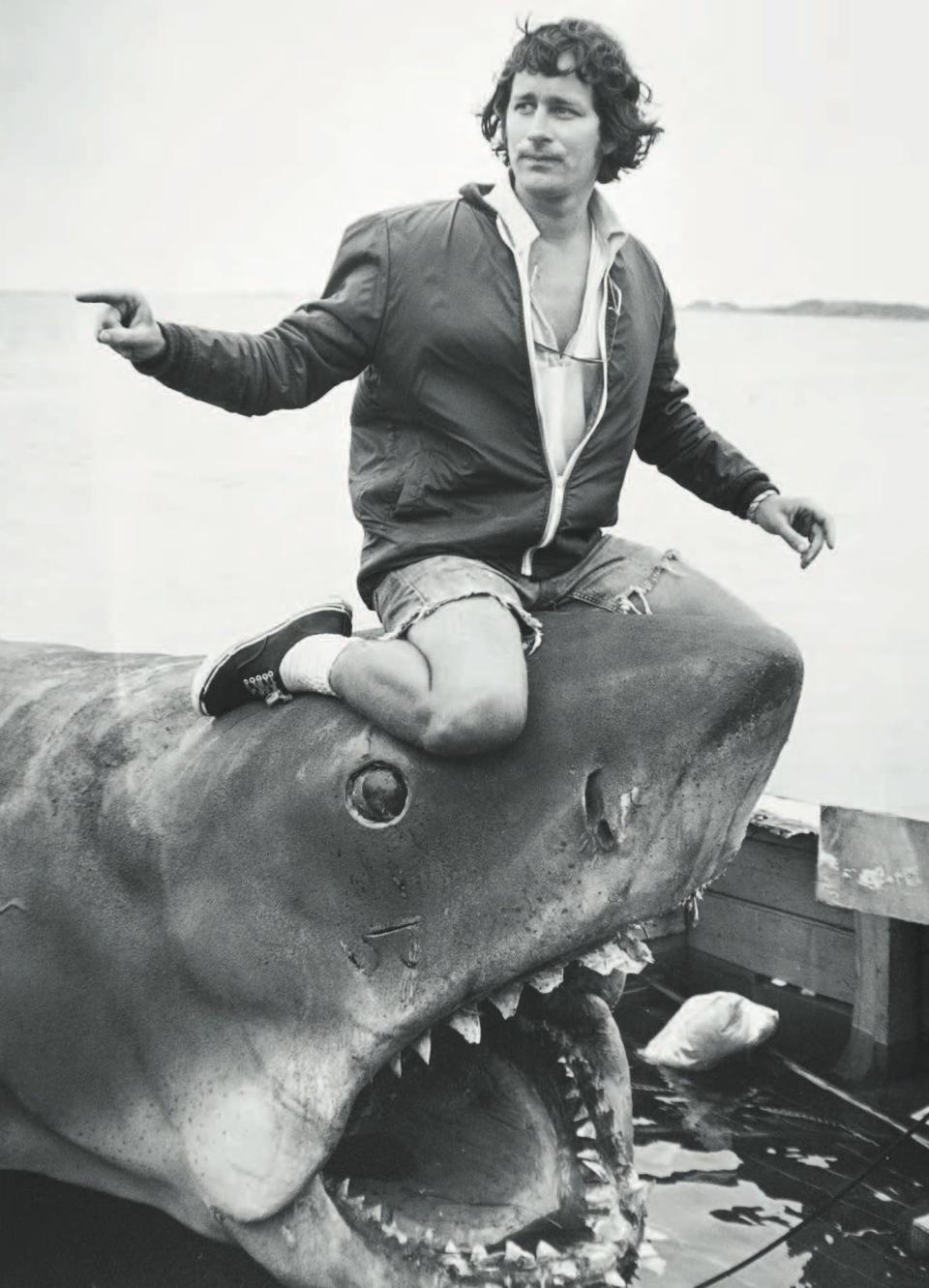
There’s so much that’s mythic about the 1975 blockbuster, from John Williams’ foreboding shark theme to the characters to the nightmare production. (The latter even spawned a current Broadway show.) The behind-the-scene struggles “mirrored in some weird way” the story itself, Bouzereau says. “It’s as much a journey for Chief Brody as it is for Chief Spielberg.” “Jaws” is also the one film Bouzereau would love to hop in a time-traveling DeLorean and see for himself. “It was just so hard and so impossible to make to the point where you don't truly know what's true and what's not true anymore,” says Bouzereau. “If I was on the set of ‘Jaws,’ I would finally be able to get the truth and everybody’s perspective.”
Booze, brawls and broken sharks: The shocking true story behind the making of 'Jaws'
Spielberg’s secret wish: ‘Close Encounters’ of the real-life kind
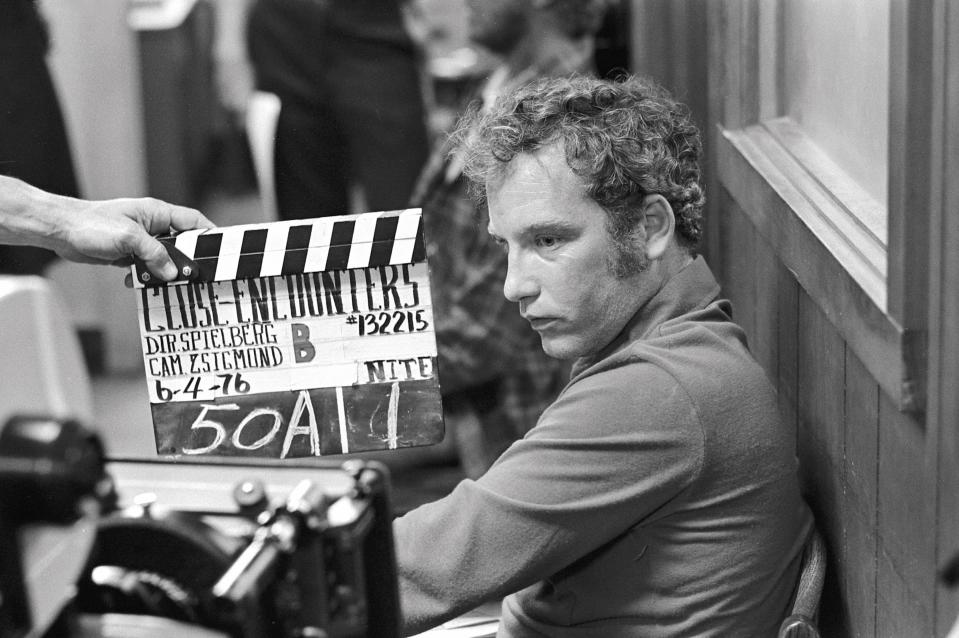
The 1977 film “Close Encounters of the Third Kind,” starring Richard Dreyfus as a Midwestern dad whose run-in with a UFO creates a deep obsession, was Spielberg’s first of many forays into sci-fi. In an interview with his book, the director quips to Bouzereau that he’s “the one person who perhaps deserves a UFO sighting, and yet, it hasn’t happened for me.” Spielberg was “truly a believer” when he made the movie, Bouzereau says, “although I think his approach comes from, yes, at first conspiracy, but then is transformed into something emotional and connecting through storytelling and this incredible ending.”
Pop culture’s come around on ‘1941,’ even if Spielberg hasn’t
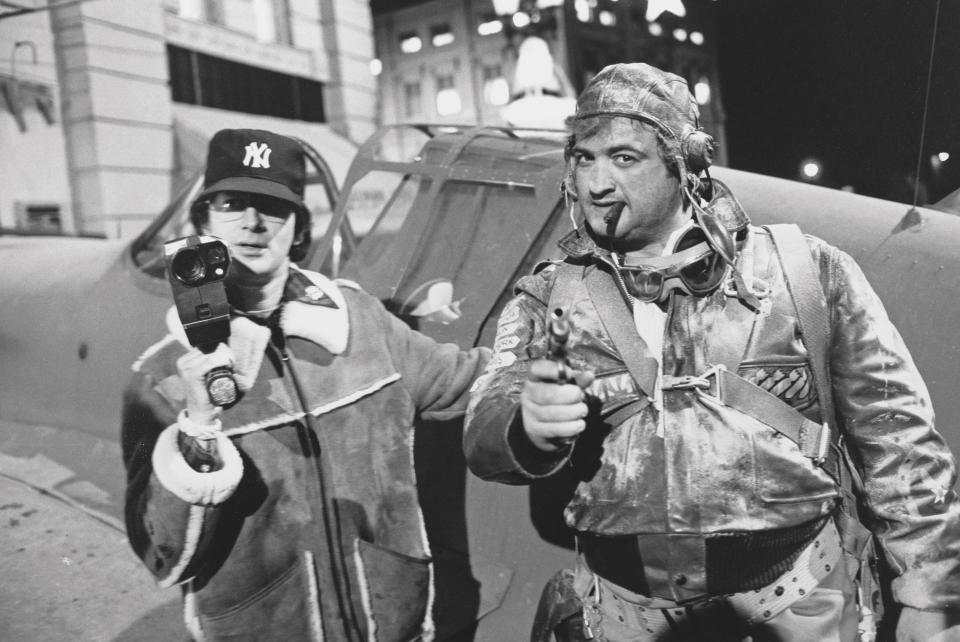
After the complicated effort of “Jaws,” Spielberg did something completely different and crafted the raucous 1979 World War II comedy, featuring an all-star ensemble headed by “Blues Brothers” stars John Belushi and Dan Aykroyd. It was a critical disaster compared to his previous darlings before ultimately became a cult classic, and even Spielberg calls it “too much of a demolition derby” in Bouzereau’s book. “I don't think it's a bright light in his filmography,” the author says. “But he often said to me, even at the very beginning, he really realized the love for the film when he went to Europe, where people were actually responding to it a lot more than they did here.”
Like many, Spielberg is a big ‘Raiders of the Lost Ark’ fan
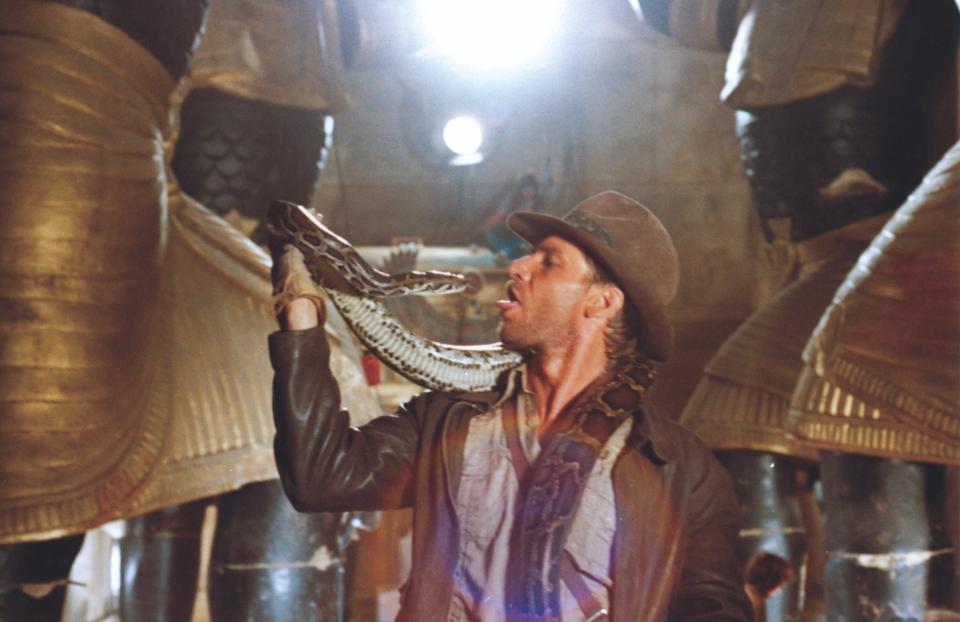
The director launched his successful “Indiana Jones” franchise with 1981’s “Raiders of the Lost Ark,” which debuted Harrison Ford’s beloved globetrotting archeologist. (Spielberg and George Lucas didn’t want Indy to be a superhero; he needed to have weaknesses, and snakes were chosen as his Achilles’ heel.) It’s Spielberg’s greatest hit for a lot of folks, and it ranks pretty high for the man who made it too. “He says that ‘Raiders’ is one of those movies that he can put on or watch with people, and say, ‘Oh, this is great! This is fun!’ ” Bouzereau reports. “He's very conscious of its impact because he can enjoy it as an audience member and detach himself from the experience of making it.”
The title alien of ‘E.T.’ was inclusive before that was a thing
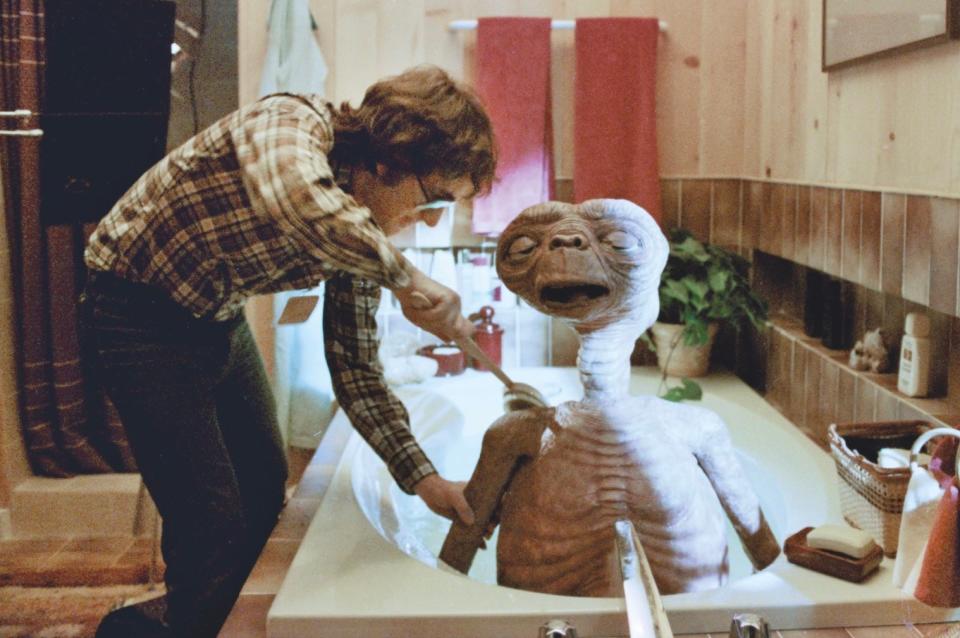
Spielberg’s first decade closed out with the 1982 sci-fi family drama “E.T. the Extra-Terrestrial,” which starred a young Henry Thomas as a kid who befriends and then helps an odd little alien get home. In his book, Bouzereau asks Spielberg about E.T.’s gender and the director revealed that was “never a consideration,” instead thinking of the character more as “a cross between a pomegranate and an avocado.” “I think that's where he's so far ahead of all of us,” the author says. “Yes, E.T. can be a boy for a young boy, can be neutral for someone else, can be a girl for a girl, and it doesn't change anything. That is the power of Steven Spielberg.”
This article originally appeared on USA TODAY: 'Spielberg: The First 10 Years': See exclusive images from early films
